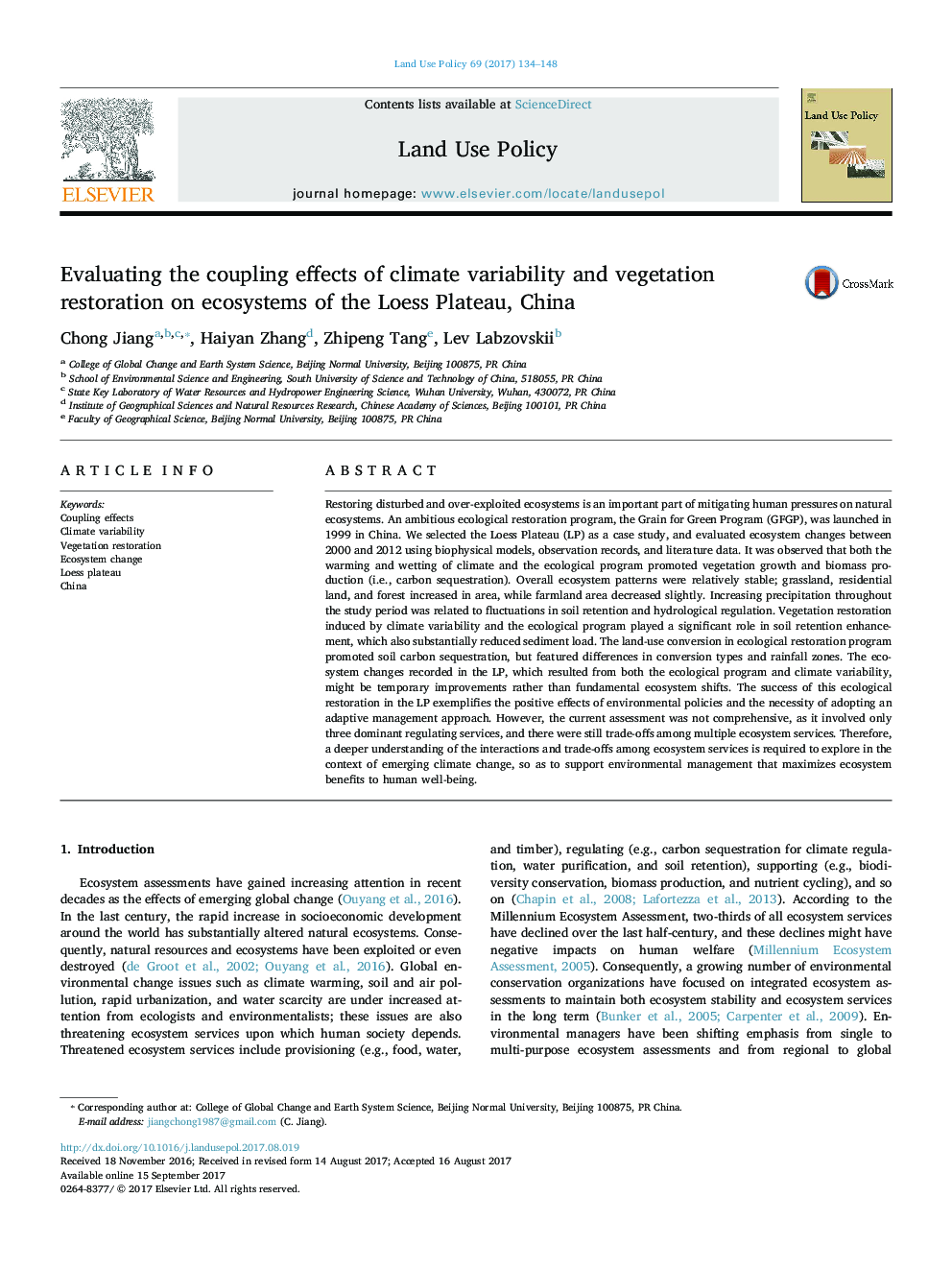| Article ID | Journal | Published Year | Pages | File Type |
|---|---|---|---|---|
| 6460337 | Land Use Policy | 2017 | 15 Pages |
â¢We evaluated the ecosystem changes in the Loess Plateau in a spatially explicit manner.â¢We investigated the underlying drivers of ecosystem changes and discussed their implications.â¢Vegetation restoration enhanced soil retention function and reduced sediment load.â¢The soil carbon sequestration was enhanced as a result of vegetation restoration.â¢The net primary productivity substantially increased between 2000 and 2012.
Restoring disturbed and over-exploited ecosystems is an important part of mitigating human pressures on natural ecosystems. An ambitious ecological restoration program, the Grain for Green Program (GFGP), was launched in 1999 in China. We selected the Loess Plateau (LP) as a case study, and evaluated ecosystem changes between 2000 and 2012 using biophysical models, observation records, and literature data. It was observed that both the warming and wetting of climate and the ecological program promoted vegetation growth and biomass production (i.e., carbon sequestration). Overall ecosystem patterns were relatively stable; grassland, residential land, and forest increased in area, while farmland area decreased slightly. Increasing precipitation throughout the study period was related to fluctuations in soil retention and hydrological regulation. Vegetation restoration induced by climate variability and the ecological program played a significant role in soil retention enhancement, which also substantially reduced sediment load. The land-use conversion in ecological restoration program promoted soil carbon sequestration, but featured differences in conversion types and rainfall zones. The ecosystem changes recorded in the LP, which resulted from both the ecological program and climate variability, might be temporary improvements rather than fundamental ecosystem shifts. The success of this ecological restoration in the LP exemplifies the positive effects of environmental policies and the necessity of adopting an adaptive management approach. However, the current assessment was not comprehensive, as it involved only three dominant regulating services, and there were still trade-offs among multiple ecosystem services. Therefore, a deeper understanding of the interactions and trade-offs among ecosystem services is required to explore in the context of emerging climate change, so as to support environmental management that maximizes ecosystem benefits to human well-being.
